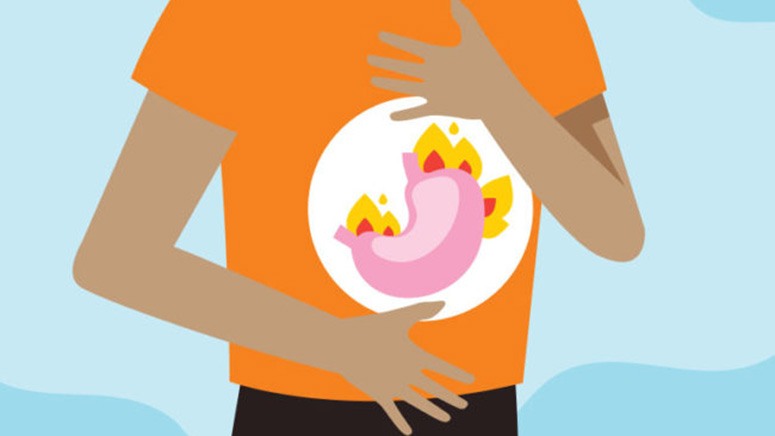Causes of heartburn vs. indigestion causes

Many people who use heartburn and indigestion interchangeably do so because they do not have a clear understanding of what causes the conditions. Sometimes indigestion may trigger heartburn in people, but their fundamental causes differ.
Heartburn
Heartburn is generally a symptom of gastroesophageal reflux disease (GERD) [3]. GERD is a chronic condition marked by the abnormal flow of acidic stomach content up the esophagus through a leaky or damaged esophageal sphincter. The corrosiveness of these substances is what is responsible for the burning sensation experienced during heartburn. Left untreated, GERD may damage the esophagus and lead to serious complications.
It is also possible to experience heartburn without having GERD. It may be triggered by certain foods, such as fried foods, alcohol, spicy foods, tomatoes, citruses, caffeinated beverages, and fatty foods.
Being pregnant also increases your risk of heartburn, as does smoking and frequently inhaling secondhand smoke.
Indigestion
Unlike heartburn, indigestion is not directly linked to stomach acid [4]. Indigestion has a wide range of causes that sometimes overlap with those of heartburn. Causes that overlap include certain food triggers. It may also happen due to eating too much food too quickly, which often prevents ingested food from digesting properly. It can also be triggered by emotional distress such as feelings of anxiety, nervousness, and depression.
In many situations, constant indigestion is a sign of any of several gastrointestinal disorders, such as peptic ulcers, irritable bowel syndrome, gastroparesis, gastritis, GERD, lactose intolerance, gall bladder disease, and stomach cancer. According to this 2016 study [5], it may also be linked to infections with the bacteria Helicobacter pylori.













